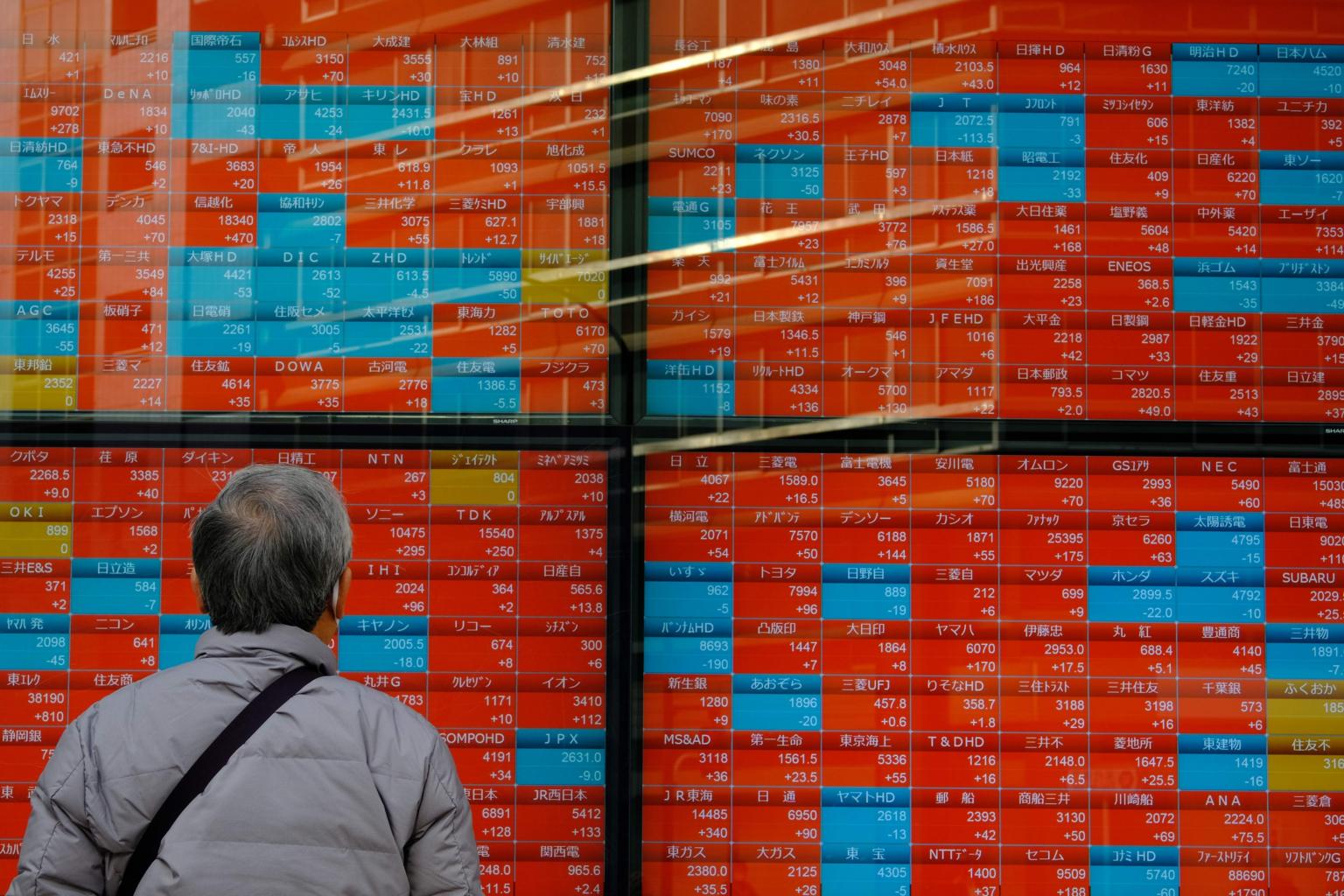Asia stocks mostly up as Biden signs US stimulus, lower yields boost tech
Sign up now: Get ST's newsletters delivered to your inbox

Most Asian share markets pushed higher on March 12, 2021.
PHOTO: AFP
SHANGHAI (REUTERS) - Most Asian share markets pushed higher on Friday (March 12) after US President Joe Biden signed a US$1.9 trillion stimulus bill into law, and as a retreat in bond yields overnight eased global concerns about rising inflation.
Biden signed the stimulus legislation ahead of a televised address in which he pledged aggressive action to speed vaccinations and move the country closer to normality by July 4.
The signing of the American Rescue Plan provided a further boost to market sentiment after the European Central Bank said it was ready to accelerate money-printing to keep a lid on borrowing costs, using its 1.85 trillion euro Pandemic Emergency Purchase Program (PEPP) more generously over the coming months to stop any unwarranted rise in debt financing costs.
That and a better-than-expected US government bond auction could support a rally in tech stocks and a rotation between growth and value stocks in the next few weeks, said Cliff Zhao, chief strategist at China Construction Bank International in Hong Kong.
"But in the second quarter the market still (will be) very volatile, and especially when we look at the US dollar it's much stronger than expectations around the end of last year. So I think the strong US dollar may weigh on some liquidity conditions in the emerging markets," he said.
MSCI's broadest gauge index of Asia-Pacific shares outside Japan gained 0.45 per cent on Friday morning, supported by tech gains.
Seoul's KOSPI added 1.12 per cent, Taiwan shares were up 0.21 per cent and Australia's ASX 200 gained 0.85 per cent.
Japan's Nikkei rose 0.99 per cent, but China's blue-chip CSI300 index lost 0.43 per cent as that country's high-valuation tech and consumer firms dragged.
Singapore's Straits Times Index was down 0.1 per cent at 10.44am local time.
US Treasury yields were higher on Friday, with the 10-year yield at 1.5405 per cent after falling to 1.475 per cent overnight, its first foray below 1.5 per cent in a week.
The German 10-year yield was last at -0.331 per cent after hitting a three-week low of -0.367 per cent.
"There might be some disappointment (the ECB) didn't expand their bond purchase program but that's largely offset by undertakings to accelerate the purchases," said Michael McCarthy, chief markets strategist at CMC Markets.
On Wall Street, easing inflation worries helped support equities. The Dow Jones Industrial Average rose 0.58 per cent and the S&P 500 gained 1.04 per cent, both to record highs. The Nasdaq Composite added 2.52 per cent.
Sentiment was also boosted by weekly jobless claims data, which pointed to a recovering US labor market as vaccine rollouts helped lead to economic reopenings.
Analysts largely expect inflation to pick up as vaccine rollouts lead to a reopening, but worries persist that Biden's stimulus package could overheat the economy.
The US dollar gained 0.22 per cent against the yen to 108.73 and the euro fell 0.1 per cent on the day to US$1.1975. The dollar index, which tracks the greenback against a basket of six major rivals, edged up to 91.488.
Oil prices retreated from sharp gains as the dollar firmed, with US crude dipping 0.3 per cent to US$65.82 a barrel. Brent crude lost 0.24 per cent to US$69.46 per barrel.
Spot gold prices were little-changed, up less than 0.1 per cent at US$1,722.40 an ounce.


